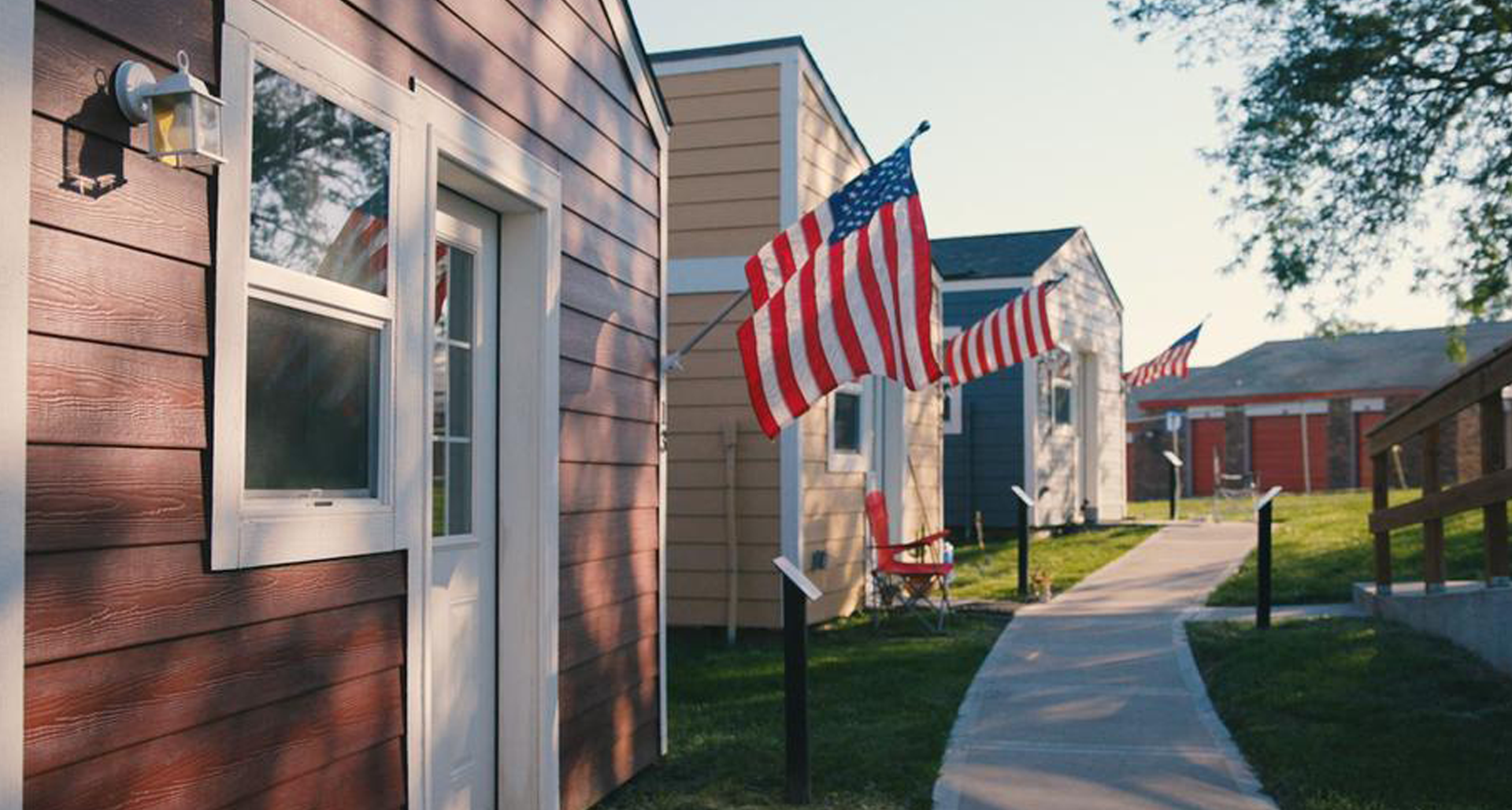
Veterans Community Project provides temporary housing in 240-square-foot homes for veterans who stay an average of 335 days to address problems and implement a plan for independent living.
After struggling with addiction and homelessness, Iraq War veteran Kyle Hanssen said a nonprofit organization’s offer of free housing at a tiny homes village seemed too good to pass up
But Hanssen, a former lance corporal in the Marine Corps, first had to commit to a rehabilitation program that consisted of mental-health counseling, job training and weekly drug tests.
With a focus on accountability, the Veterans Community Project — which is expanding nationwide — provides temporary housing in 240-square-foot homes for veterans who stay an average of 335 days to address problems and implement a plan for independent living.
“While living in a tiny home in our village, veterans pay zero in rent. We only ask that they put in the work investing in their future by working our case management program,” said Bryan Meyer, chief executive officer and a veteran co-founder of Veterans Community Project.
The program sounds similar to homelessness assistance reforms the Trump administration announced last week to steer billions of dollars from permanent housing support to temporary subsidies with eligibility rules for work and drug treatment. The long-term housing subsidies by the Department of Housing and Urban Development have represented 90% of federal housing assistance but will drop to 30% under the proposal.
Meyer, a former Marine Corps corporal, said there are critical differences between the HUD proposal and the services provided by Veterans Community Project. He said the nonprofit tailors its help to individual need, while the HUD reforms “put in hard requirements” to qualify recipients for housing assistance.
Meyer questioned whether the changes planned by HUD will make homelessness worse for veterans and other populations. “When you have a lot of check-the-box requirements, it can dissuade [veterans] from participation,” Meyer said.
Veterans Community Project claims an 85% success rate among participants receiving on-site support and case management at its tiny home villages. In 2025, the organization provided services to 1,000 participants.
“Veterans Community Project gave me the space and time to identify and understand challenges holding me back,” said Hanssen, who lived in one of the organization’s tiny homes for 18 months starting in 2018.
Former service members have a disproportionately higher rate of homelessness than the general population. Hanssen, who had shoulder and back injuries from military service, said his life “collapsed” from financial pressures and a growing addiction to pain pills.
“The team at Veterans Community Project stepped in to fight for me so I could work on my whole self,” Hanssen said.
Veterans Community Project does not directly provide substance abuse treatment but works with community partners to connect veterans to get the help that they need. The organization, with headquarters in Kansas City, Mo., said it partners with veterans service organizations, law clinics and other local stakeholders in communities where it operates.
Support for the nonprofit comes from state governments, corporate donors, private grants and individual giving. Philip Morris International’s U.S. businesses, for example, have given $500,000 to the Veterans Community Project since 2024.
Only 5% of funding comes directly from the federal government, which has enabled Veterans Community Project to grow as similar programs have scaled back amid recent cuts. The nonprofit is opening tiny homes villages in Wisconsin and Arizona after operating developments in Missouri, Colorado and South Dakota.
Hanssen previously was a truck driver in the military hauling ammunition and supplies to the front lines. A counselor at Veterans Community Project suggested he become a trucker, given his military background.
Hanssen said the guidance he received compelled him to study for his commercial trucker’s license, attend classes on managing finances and receive mental health counseling. His wife and children moved in with him into a family-style tiny home for part of his stay.
“They actually really liked it,” he said.
Hanssen later bought a four-bedroom home in rural Missouri after leaving the program. He works as a long-haul driver and instructor. Hanssen could not imagine a decade ago that he could turn around his life, let alone build a better future for himself and his family, he said.
“It is hard for people who know me now to believe I was once homeless,” Hanssen said. “Our two youngest kids have no idea what their dad went through. I am glad they do not have an awareness of the man I was back then,” Hanssen said.
- Homeless Veterans

